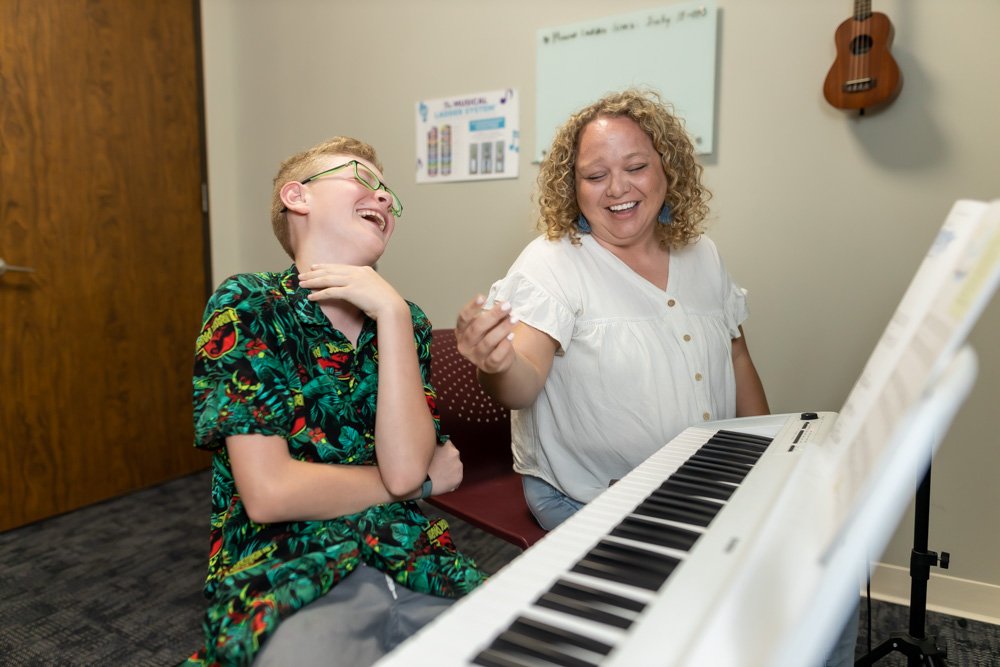As parents and educators, we all want our children to succeed academically. We enroll them in top schools, hire tutors, and provide them with various resources to help them excel. It’s often mentioned that students who participate in some type of music lessons perform higher academically, but how true is this claim in reality? Here are a few things we’ve learned
Music lessons improve cognitive skills
Learning music requires the use of various cognitive skills such as memory, attention, and language processing. A study conducted by the University of Zurich found that children who received music lessons showed significant improvements in verbal memory and auditory processing compared to children who didn't receive music lessons.
Another study by Northwestern University found that students who participated in music lessons showed improved cognitive flexibility, which is the ability to switch between different tasks or ideas. This skill is essential in academic settings, especially when students need to solve complex problems.
Music lessons boost academic performance
Music lessons have been linked to improved academic performance, particularly in subjects such as math and science. Learning music involves understanding patterns and rhythms, which can help students develop their math skills. A study conducted by the University of Kansas found that students who received music lessons scored higher on standardized tests in math and reading compared to students who didn't receive music lessons.
Music lessons can also help students in science. Learning music requires an understanding of sound waves, acoustics, and vibrations, which are essential concepts in science. By understanding these concepts, students can develop a better understanding of science and its applications.
Music lessons enhance social and emotional development
In addition to cognitive and academic benefits, music lessons can also improve social and emotional development. Music is a form of self-expression, and learning music can help students develop their creativity and confidence. It also provides an outlet for students to express their emotions, which can be beneficial in improving their mental health.
Music lessons can also improve social skills. Learning music often involves working in groups, which can help students develop their communication and teamwork skills. Additionally, music lessons can help students develop empathy and understanding for others, which are essential skills for building positive relationships.
Music lessons can have a significant impact on both a student's academic performance and overall development. By enhancing cognitive skills, boosting academic performance, and improving social and emotional development, music lessons can provide students with a well-rounded education that goes beyond traditional academic subjects. As parents and educators, we should encourage students to participate in music lessons and recognize the value that it can bring to their lives.
Resources:
University of Zurich study on music lessons and cognitive skills: Schellenberg, E. G., & Moreno, S. (2010). Music lessons enhance IQ. Psychological Science, 21(11), 1377-1384. doi: 10.1177/0956797610387441
Northwestern University study on music lessons and cognitive flexibility: Moreno, S., Bidelman, G. M., & Alain, C. (2014). Tracing neural plasticity: A proposed magnetoencephalography-based framework for mapping dynamic changes in cortical networks underlying music training. Frontiers in Human Neuroscience, 8, 1-10. doi: 10.3389/fnhum.2014.00973
University of Kansas study on music lessons and academic performance: Johnson, C. M., & Memmott, J. E. (2006). Examination of relationships between participation in school music programs of differing quality and standardized test results. Journal of Research in Music Education, 54(4), 293-307. doi: 10.2307/25046298
American Psychological Association study on music lessons and emotional development: Guhn, M., Emerson, S. D., & Gouzouasis, P. (2018). A population-level analysis of associations between school music participation and academic achievement. Journal of Educational Psychology, 110(8), 1182-1197. doi: 10.1037/edu0000256



